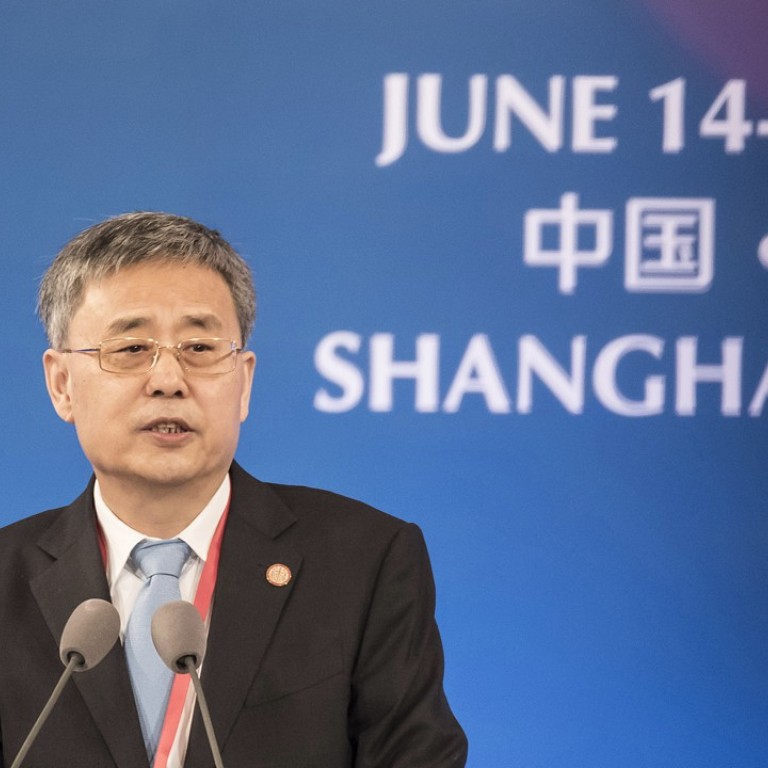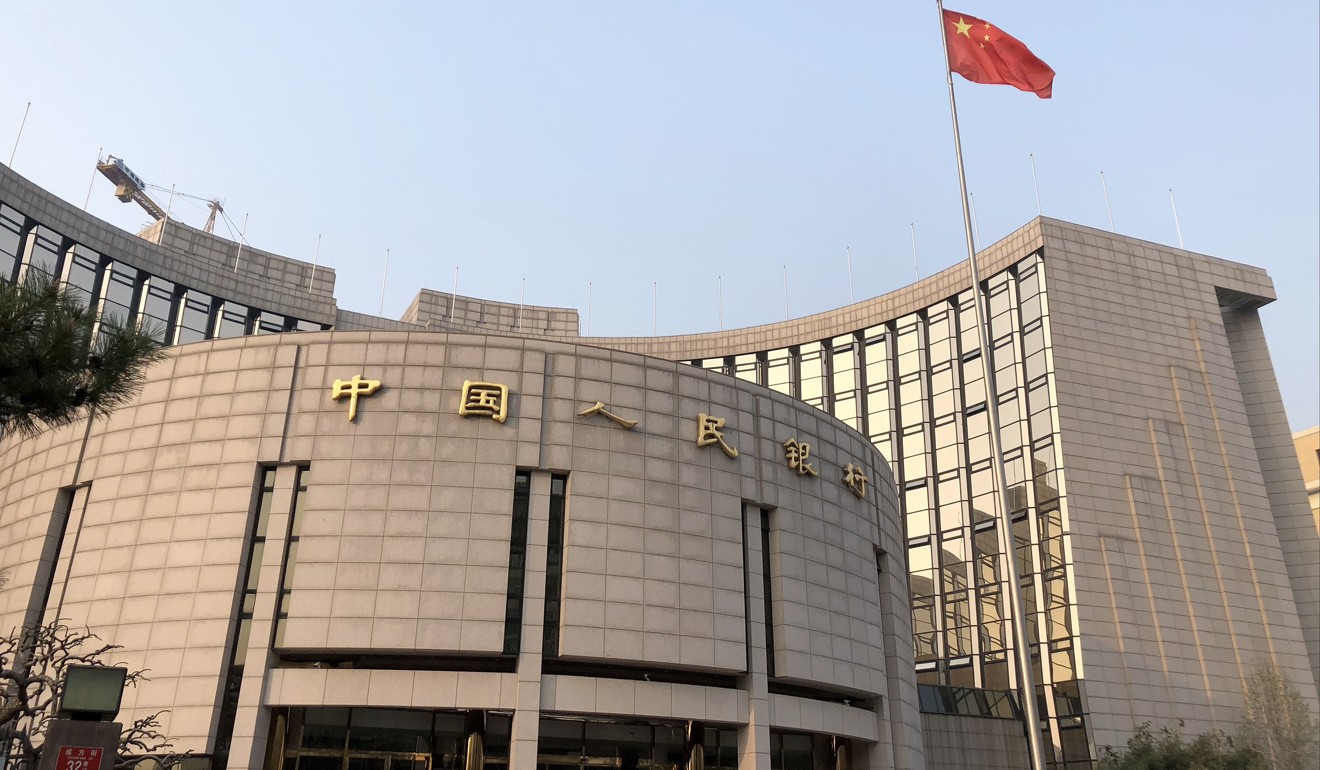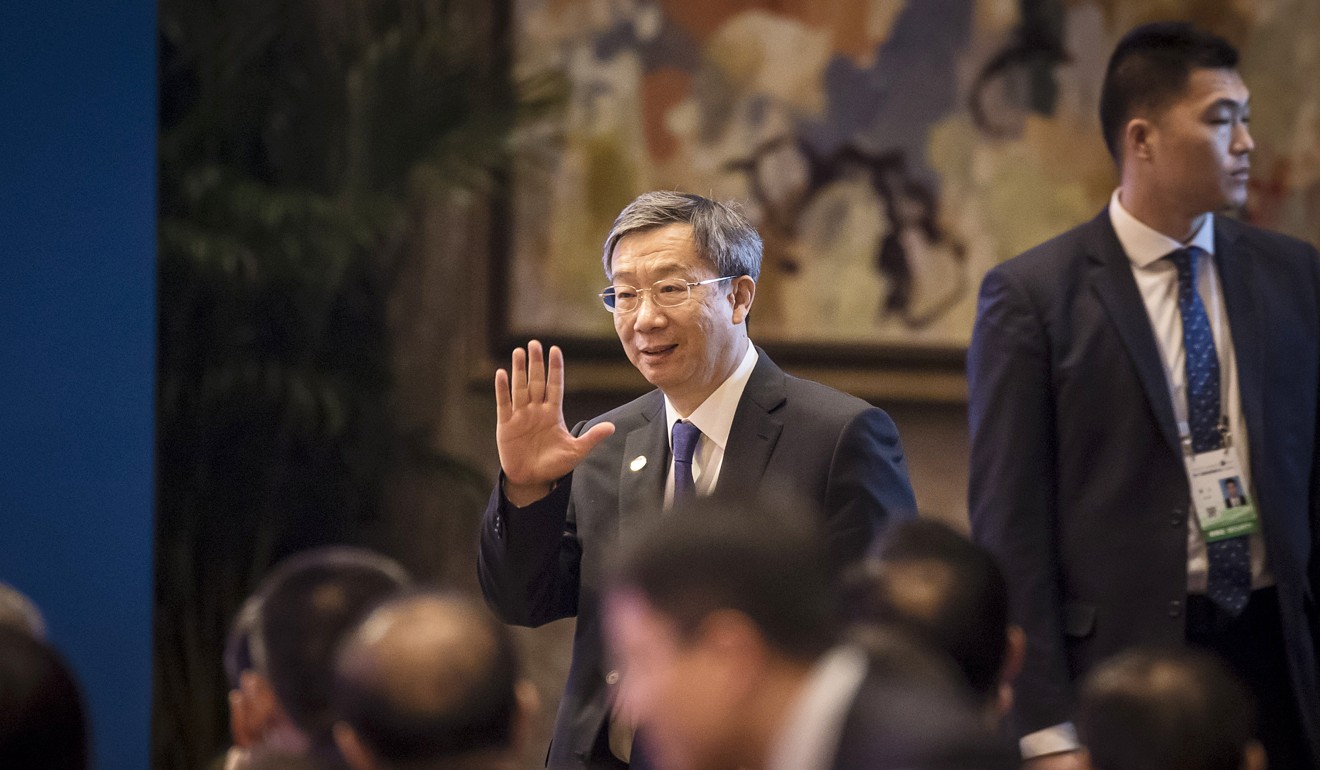
Debt defaults to rise as China focuses on tackling bloated state enterprises, local governments in deleveraging drive
Guo Shuqing, China’s top financial regulator, says the focus is on state companies and local governments in the government’s structural deleveraging drive to ward off future financial risks and even though debt defaults could rise they will be kept to manageable limits
Debt defaults at Chinese companies could rise as a consequence of Beijing’s unrelenting drive to trim leverage and debt levels at state-owned enterprises and local governments, according to the country’s top financial regulator.
As a result of the monetary tightening, at least 20 companies have failed to meet bond or loan repayment obligations so far this year.
Bonds worth about 20 trillion yuan are set to expire by next year, triggering fears that the number of defaults could spiral as China’s tight leash on liquidity can make it difficult for indebted firms to access fresh funds.
Financial regulators were focusing on state companies and local governments in their “structural deleveraging” drive to ward off future financial risks, Guo Shuqing, head of the China Banking and Insurance Regulatory Commission, told the Lujiazui financial forum on Thursday.
Some local government bodies, banks and enterprises had failed to take the campaign seriously to trim debt levels and cut excessive production capacities, Guo said, criticising those taking a wait-and-see attitude in disposing off non-performing assets and “zombie” enterprises.
Businesses that received cheap funding but generated losses or did not generate enough profit to cover their interest payments are often defined as zombie companies.

According to a study from Renmin University, more than half of Chinese steel mills, mostly state-owned, qualify for the title, with many of those emerging after 2008 following China’s 4 trillion yuan (US$635 billion) stimulus.
A market-driven bankruptcy mechanism in accordance with rule of law is still a far cry in China, Guo said, hinting that it could be difficult for zombie companies to exit the market properly.
Regarding the recent rise in bond defaults, Guo said it was natural to see such debt defaults in a market economy, adding that China’s default ratio was still lower than many countries.
The veteran financial regulator, who was previously the head of mainland’s top securities watchdog, said China was determined in pushing ahead with the opening up of its tightly regulated financial industry to foreign players.
“Some comrades are concerned that opening the financial industry could hit China’s financial markets and are a threat to the nation’s financial safety, but such worries are unnecessary,” Guo told an audience that included government officials, local and foreign bankers and academics.
Foreign lenders accounted for a mere 1.3 per cent of China’s banking assets and 6 per cent of the insurance sector, he said, alluding that such exposure was too little to undermine the whole industry.
Guo also vowed more financial support to the nation’s underserved small businesses, a topic Yi Gang, governor of the People’s Bank of China, elaborated further.

Yi told the forum that the central bank was working with several government bodies to boost loans to smaller firms, which account for 80 per cent of jobs and 60 per cent of China’s economic output.
The central bank will use monetary policy tools including reserve requirements and re-lending to support those companies, especially those with a credit line of less than 5 million yuan.
The PBOC was discussing with the ministry of finance to give tax incentives to small businesses, he said, noting that such policies were well under way and will be launched soon.
The central bank has already boosted liquidity supply through its medium-term lending facility this year and cut reserve requirements to ramp up money supply to small businesses.
Also speaking at the forum, Fang Xinghai, vice-chairman of the China Securities Regulatory Commission, said the regulator was working on measures aimed to boost the inclusion factor of mainland stocks in MSCI’s global indexes from 5 per cent to 15 per cent as soon as possible.
“The CSRC is already working with the Shanghai and Shenzhen exchanges on new systems and tool arrangements, including reforms to the stock closing price mechanism, share suspension rules and index futures,” he said.
He also said an exchange link with the London Stock Exchange, which allows Chinese investors access to European stocks, was almost ready and will be unveiled before the year-end.
Additional reporting by Daniel Ren and Zhang Shidong

